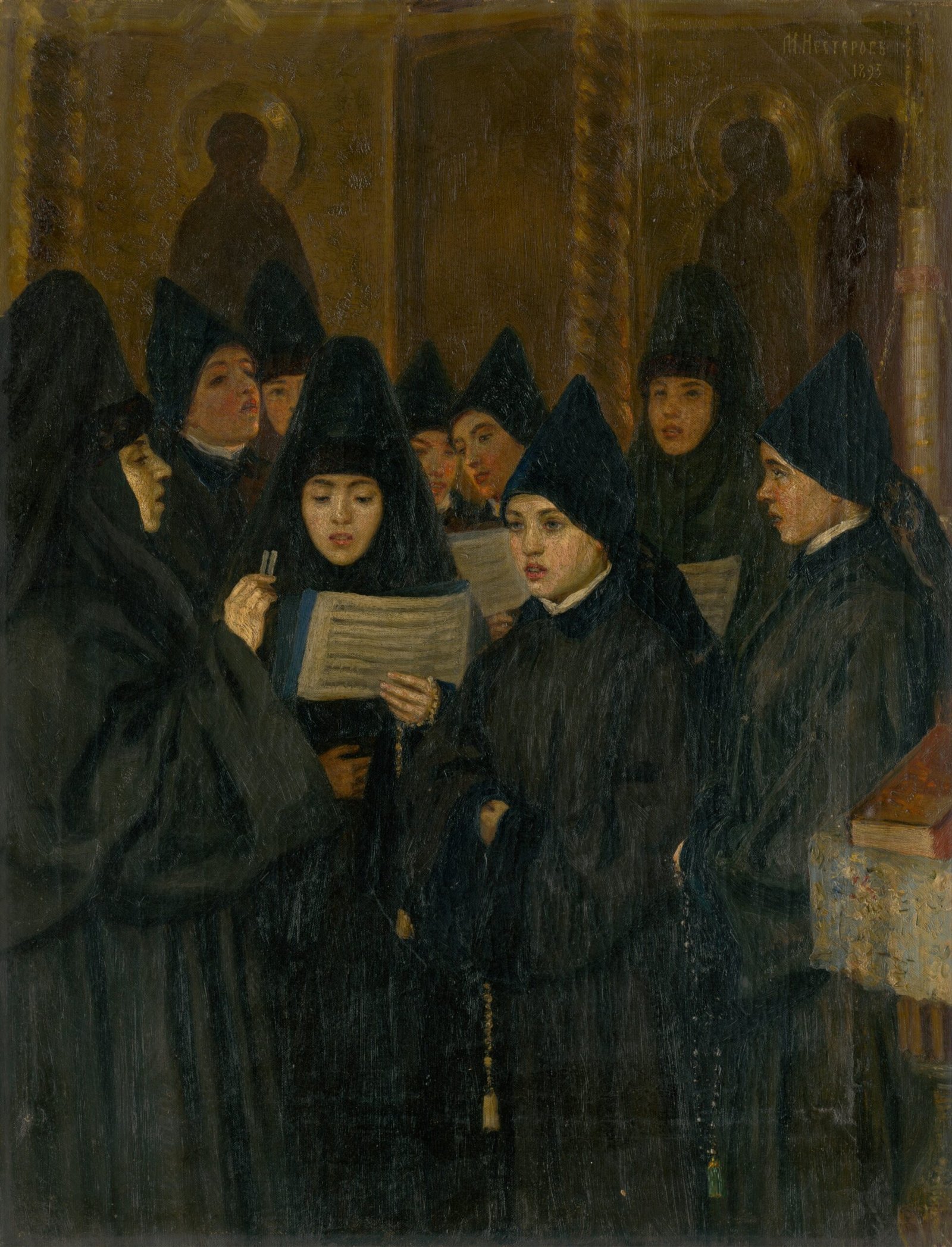Introduction to Religious Freedom
Religious freedom, often referred to as the right to practice one’s faith without interference, is a fundamental human right that underpins the values of personal conscience and societal harmony. This principle asserts that individuals should have the autonomy to choose, express, and change their religious beliefs without fear of persecution or discrimination. The importance of religious freedom in society cannot be overstated, as it fosters respect for diversity and encourages coexistence among different belief systems, thereby creating a more inclusive community.
The historical context of religious freedom reveals a complex evolution influenced by cultural, political, and social factors. Originating from the necessity to protect individual rights, the concept gained significant traction during the Enlightenment period. Prominent thinkers advocated for the separation of church and state, arguing that religious beliefs should not be enforced by governmental power. This movement paved the way for modern democracies to acknowledge and safeguard religious rights through legal frameworks.
More information The Seven Trumpets and Their Plagues in Revelation
The Seven Trumpets and Their Plagues in RevelationGlobally, perceptions of religious freedom vary substantially. In some countries, it is enshrined in law and widely respected; in others, individuals face severe restrictions or even persecution based on their faith. Areas with high levels of religious tolerance tend to experience greater social cohesion and respect for individual rights, fostering community dynamics that promote peace and understanding. Conversely, societies that lack robust protections for religious freedom often grapple with conflict and division, as differing beliefs can lead to societal tensions.
In examining the evolution of religious freedom and its implications, it is essential to appreciate the ongoing struggle for individuals and communities to claim their right to religious expression. As society continues to navigate the complexities of modern life, the commitment to preserving religious freedom remains vital to ensuring peace, equality, and mutual respect among diverse populations.
Understanding Quakerism: Beliefs and Practices
Quakerism, also known as the Religious Society of Friends, emerged in the 17th century during a period of religious turmoil in England. Founded by George Fox, Quakerism is characterized by its diverging beliefs from mainstream Christianity, emphasizing personal experience with the divine over formal rituals and doctrines. Quakers believe in the “Inner Light,” which refers to the notion that there is a divine presence within every individual, often articulated through the phrase “that of God in everyone.” This principle underscores their commitment to personal conscience and offers a basis for understanding religious freedom.
More information Pope Francis: A Testament of Humility and Devotion
Pope Francis: A Testament of Humility and DevotionThe practices of Quakers are distinctive and reflect their core beliefs. Central to Quaker worship is the practice of silent meditation, known as “waiting worship,” where participants gather in silence and wait for inspiration to speak as led by the Inner Light. This form of worship fosters a communal connection with the divine while allowing individuals to explore their spiritual insights without the influence of structured sermons or liturgies. Quakers hold that each member has the potential to receive divine guidance, and this principle reinforces their conviction in the dignity and worth of all people.
Moreover, Quakerism places a strong emphasis on social justice and equality, stemming from their belief in the divine presence residing in every person. This belief drives Quakers to advocate for issues such as peace, environmental stewardship, and human rights. Their approach to religious freedom is rooted in the idea that each person should have the liberty to discover and express their spiritual truths without coercion. Consequently, Quakers have historically been at the forefront of movements for social change, speaking out against injustices while promoting the importance of personal conscience in every aspect of life.
The Concept of Spiritual Autonomy
Spiritual autonomy is a cornerstone of Quaker beliefs, emphasizing the individual’s right to interpret and live out their faith according to personal conscience. Unlike many religious traditions that may prioritize doctrinal conformity or institutional authority, Quakerism encourages each individual to engage directly with their spiritual experiences. This emphasis on personal conscience allows for a diverse range of interpretations and practices within the Quaker community, reflecting the rich tapestry of spirituality that exists among its members.
More information Understanding Sunni Beliefs: The Foundation of Faith in Islam
Understanding Sunni Beliefs: The Foundation of Faith in IslamThe principle of spiritual autonomy empowers individuals to be active participants in their spiritual journeys. This means that decisions about beliefs, practices, and moral conduct are primarily derived from one’s personal understanding of faith rather than imposed by external authorities. Such self-determination not only fosters a sense of ownership over one’s spiritual life but also promotes an environment of mutual respect within the community. By allowing individuals the freedom to explore their relationship with the divine, Quakerism cultivates a culture where various perspectives can coexist harmoniously.
Moreover, the relationship between spiritual autonomy and decision-making is particularly significant in Quaker practice. Quakers often engage in a form of collective contemplation known as “sense of the meeting,” where individuals share their insights and feelings in a communal setting. This process exemplifies how personal conscience is not isolated; rather, it is refined and discerned through interaction with others. The resultant decisions, whether they pertain to social justice efforts or personal commitments, reflect both the individual’s spiritual autonomy and the collective wisdom of the community.
Ultimately, the concept of spiritual autonomy in Quakerism serves to enhance the individual’s capacity for personal growth and ethical reflection. Through this framework, Quakers navigate their faith journeys, deeply rooted in their conscience, while remaining connected to a larger communal identity.
More information The Evolution of Temple Practices and Personal Growth Within the Latter Day Saints Community
The Evolution of Temple Practices and Personal Growth Within the Latter Day Saints CommunityReligious Liberty: A Fundamental Human Right
Religious liberty, often regarded as a fundamental human right, encapsulates the freedom of individuals to practice their religion without interference, persecution, or discrimination. This right is recognized in numerous international laws and agreements, most notably the Universal Declaration of Human Rights (UDHR), which states in Article 18 that “Everyone has the right to freedom of thought, conscience and religion.” This lays down a foundational legal framework that supports and promotes the values of religious freedom across the globe.
Despite these affirmations, challenges to religious liberty persist in various regions. Many countries impose restrictions on religious practices, impose penalties for non-compliance with official doctrines, or enforce laws that discriminate against certain faiths. For instance, in some authoritarian states, individuals encounter severe repercussions for practicing unauthorized religions, such as imprisonment or even violence. Such challenges highlight the need for continued advocacy and vigilance to protect the rights of individuals to express their beliefs freely.
Various organizations play pivotal roles in championing religious freedom worldwide. Entities like the United Nations and numerous non-governmental organizations (NGOs) work tirelessly to monitor violations and advocate for those whose rights are suppressed. Initiatives such as the International Day of Religious Freedom emphasize global commitment towards creating awareness regarding the importance of this right. Additionally, academic and civil society networks contribute research and resources aimed at understanding and improving the state of religious liberty.
More information Faith and Freedom: Untold Stories of Mormon Libertarians
Faith and Freedom: Untold Stories of Mormon LibertariansThe ongoing struggle for religious freedom not only reflects the inherent dignity of individuals but also underlines the necessity for societies to foster an environment where diverse beliefs coexist. Addressing the challenges to religious liberty is essential for ensuring that all individuals can exercise their consciences and beliefs fully, contributing to a more peaceful and inclusive world.
Quaker Advocacy for Religious Freedom
The Quaker community, formally known as the Religious Society of Friends, has a long-standing history of advocating for religious freedom. This commitment stems from Quaker beliefs in individual conscience and the fundamental right of all people to worship freely. From the early 17th century, Quakers faced persecution for their beliefs, which spurred their dedication to championing the liberties of others. One pivotal moment in their advocacy occurred in 1661 when Quaker leader George Fox was imprisoned for dissenting from the Church of England. This early persecution galvanized the Quakers to advocate not only for their own rights but for the rights of all oppressed religious minorities.
Throughout history, Quakers have engaged in notable campaigns to promote the freedom of conscience. For instance, during the American Revolution, Quakers opposed both British tyranny and state-sponsored religious practices. They contributed to the drafting of the U.S. Constitution, with significant input regarding the First Amendment, which assures the free exercise of religion. Key figures such as William Penn and John Woolman have played instrumental roles in shaping Quaker perspectives on liberty and justice. Penn, an influential Quaker and the founder of Pennsylvania, established one of the first American colonies that provided religious tolerance, embodying the principle of living harmoniously with diverse faiths.
More information Religious Liberty: Mormon Perspectives on Individual Freedom
Religious Liberty: Mormon Perspectives on Individual FreedomIn contemporary society, Quakers continue to be proactive in defending religious freedom. Organizations like the American Friends Service Committee work tirelessly to address injustices faced by marginalized communities, often advocating for the rights of refugees and those facing persecution for their beliefs. Additionally, the Quaker United Nations Office represents Quaker values on a global platform, stressing the importance of interfaith dialogue and collaboration to foster peace. Through these efforts, the Quaker commitment to religious freedom remains evident, underscoring their historical mission and current relevance in the fight for liberty and conscience throughout the world.
Personal Conscience in Decision-Making
Personal conscience plays a pivotal role in shaping decision-making processes among Quakers, who prioritize the guidance of their inner moral compass over external societal norms. Quakerism encourages each individual to seek inner truth, fostering a deep sense of personal responsibility when it comes to moral choices. This emphasis on personal conscience enables Quakers to approach conflicts—whether ethical, social, or political—through a lens of introspection and spiritual discernment.
In the Quaker tradition, decisions are often made collectively through a process known as “meeting for worship with a concern for business.” During these meetings, individuals are encouraged to listen attentively to their inner convictions while remaining open to the insights of others. This practice allows members to address dilemmas that may arise when personal beliefs clash with societal expectations, emphasizing the importance of community support in mapping the outcomes of such conflicts.
Consider the case of Quakers’ historical opposition to war and violence. Many Quakers have faced challenges in decision-making when societal pressures promote militaristic values. Guided by their conscience, they have often made choices that align with their pacifist beliefs, participating in peace activism or conscientious objection. Such actions demonstrate the Quaker commitment to individual principles, even in the face of societal disapproval.
Moreover, personal conscience in Quakerism extends to issues of social justice, environmental sustainability, and economic equity. Quakers strive to translate their beliefs into concrete actions, often advocating for policies that resonate with their moral values. This integration of personal conscience and activism illustrates how individuals can navigate societal norms without compromising their integrity.
Through these examples, it becomes evident that personal conscience significantly informs decision-making within the Quaker community, highlighting the balance between individual beliefs and collective values. By staying true to their convictions, Quakers strive to create a meaningful impact while navigating the complexities of modern society.
Challenges to Religious Freedom Today
In contemporary society, the landscape of religious freedom faces numerous challenges that threaten the ability of individuals and groups to practice their faith freely. Various global regions experience rising instances of persecution and discrimination against specific religious groups, including Quakers. This persecution, manifesting through legislation, societal norms, and violent actions, creates significant barriers to exercising personal conscience and spiritual beliefs.
One of the pressing challenges is state-sponsored suppression of religious practices. In certain countries, laws explicitly curtail the rights of minority religions, creating an environment in which adherence to one’s beliefs can lead to severe repercussions. This includes imprisonment, forced conversion, or, in extreme cases, violence against individuals who dare to practice their faith publicly. Such state-sponsored actions undermine the essence of religious freedom, as individuals live in fear of expressing their beliefs. For Quakers, whose beliefs often center on peace and social justice, these constraints can present profound ethical dilemmas and hinder their community engagement.
Moreover, societal pressures can exert a significant influence on individuals’ freedom of conscience. In regions where a predominant faith governs social norms, adherents of minority religions often face ostracization, discrimination in employment, and lack of access to public services. These societal dynamics restrict the ability of individuals to openly identify with their faith and diminish their capacity to contribute positively to their communities. The intersection of these challenges emphasizes the need for continued advocacy and awareness to promote an environment where all individuals can uphold their personal conscience unhindered by persecution or discrimination.
As we explore the current state of religious freedom, it becomes increasingly clear that a collective effort is necessary to combat these challenges and protect the sanctity of every individual’s right to believe and practice their faith freely.
The Importance of Community in Religious Freedom
The role of community in fostering and protecting religious freedom is paramount, particularly within the context of Quakerism. Quaker communities emphasize a collective approach to spirituality that not only supports individual conscience but also seeks to advocate for the rights of all members. This dynamic creates a unique interplay between personal autonomy and communal values, underscoring the idea that individual beliefs can flourish within a supportive network.
One of the fundamental principles in Quaker practice is the belief in the “Inner Light,” which represents the presence of the divine within each individual. This belief fosters an environment where personal conscience is respected and celebrated. Quaker meetings often serve as spaces for shared worship, where individuals can express their spiritual insights and experiences. This communal setting allows individuals to feel a sense of belonging and connection, making it easier to navigate the complexities of faith and practice in a supportive atmosphere.
Moreover, Quaker communities are known for their strong advocacy for social justice and collective rights. This commitment reflects the understanding that religious freedom is not just an individual right but a communal necessity. By standing together, Quakers can amplify their voices on issues such as peace, equality, and human rights. The interdependence between personal conscience and community values is evident, as Quakers recognize that the well-being of one is tied to the well-being of all. This ethos establishes a framework through which members can encourage each other to seek truth, justice, and compassion in their daily lives.
In fostering this sense of community, Quakerism illustrates how communal support can enhance personal religious freedom. By nurturing environments where individual beliefs are respected and celebrated, Quaker communities exemplify the balance between the sanctity of personal conscience and the vital role of collective values in advocating for religious freedom.
Conclusion: The Future of Religious Freedom and Personal Conscience
As we reflect on the significance of religious freedom and personal conscience, it becomes apparent that these principles are not only foundational to individual identity but also crucial for fostering societal harmony. In the quest for an inclusive society, understanding and advocating for the beliefs of others—regardless of their origins—will play a pivotal role in shaping the future. The insights drawn from Quakerism illustrate the profound impact that personal integrity and respect for diverse perspectives can have. This approach encourages dialogue and collaboration, challenging communities to embrace plurality rather than division.
Looking ahead, it is imperative that future generations grasp the importance of religious freedom as a fundamental human right. This understanding promotes an environment where individuals feel empowered to express their beliefs openly and without fear of discrimination or persecution. As historical examples have shown, the erosion of such freedoms often leads to societal unrest and conflict. Therefore, guardianship of these liberties is essential for peaceful coexistence.
Moreover, the intrinsic connection between personal conscience and religious freedom cannot be overstated. Individuals must be encouraged to explore their convictions and to engage with differing viewpoints. This exploration fosters a culture of empathy and respect, enabling society to address contentious issues with a sense of commonality and understanding. Continuous advocacy for these ideals is vital, recognizing that the right to personal conscience is integral not only to personal fulfillment but also to the collective welfare of communities.
In conclusion, as we navigate the complexities of an increasingly pluralistic world, the commitment to upholding religious freedom and personal conscience must remain steadfast. It is our collective responsibility to promote and protect these values, ensuring that all individuals can find their voice within the larger narrative of humanity.



